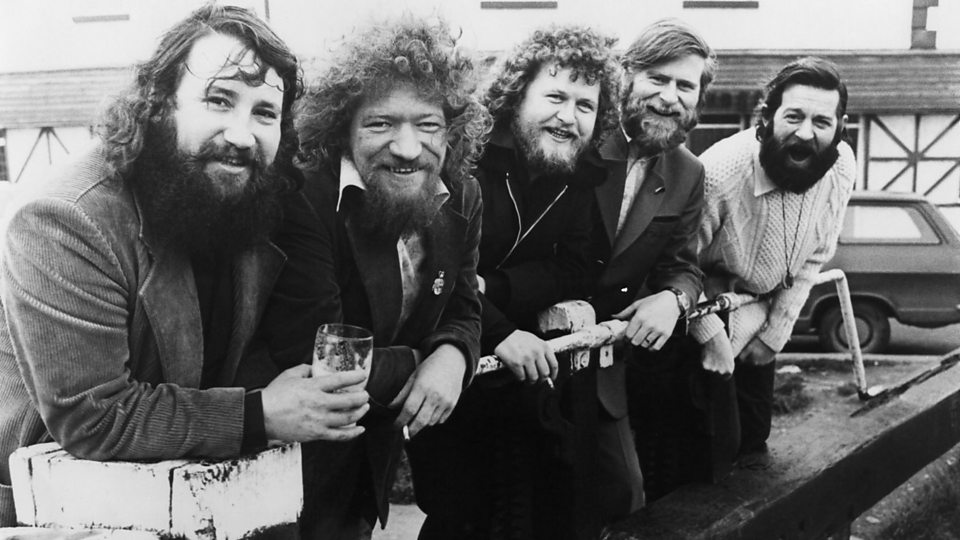
The Dubliners occupy a unique position in comparison to the other bands examined in this project. The Dubliner’s gained rapid popularity for their recordings of traditional Irish folk music and street ballads. However, their increase in popularity was marked by controversy over their recordings of politicized songs during The Troubles.
It should be noted, however, that the controversy surrounding the Dubliners’ music taste is largely fabricated. Whereas the Wolfe Tones fully embraced Irish Rebel Song, the Dubliners were far better known for their appreciation of, and adherence to, Irish folk traditions. While it is true that the Dubliners recorded music associated with Irish republicanism, it seems that this was largely lip service to appeal to a wider audience.
Those songs that the Dubliners recorded that were deemed subversive or controversial were generally scrubbed of overly inflammatory rhetoric. Take, for example, their recording of the song “The Foggy Dew,” in which the band omitted the final verse:
“Ah, back through the glen I rode again and my heart with grief was sore
For I parted then with valiant men whom I never shall see more
But to and fro in my dreams I go and I’d kneel and pray for you,
For slavery fled, O glorious dead, When you fell in the foggy dew.”
These final lines are a call to action, encouraging violent retribution against British armed forces for the deaths of Irishmen. Given the Dubliners’ activity during a time of political upheaval it made sense to avoid overly political rhetoric. If the Dubliners had embraced such a strong political message, it is unlikely that their music would have gained such popularity in continental Europe.

Following the escalation of the conflict in Northern Ireland in 1969, the Dubliners struck much of their controversial repertoire from their set lists. By focusing on non-politicized folk music, the Dubliners were able to build an international following to rival that of the Chieftans. They catered their song choices to audiences outside of Ireland who would have had little vested interest in the conflict in Northern Ireland. By focusing on developing their international label, the Dubliners effectively popularized Irish folk music and introduced it to the world in a such a way that one did not have to be Irish to appreciate it.
